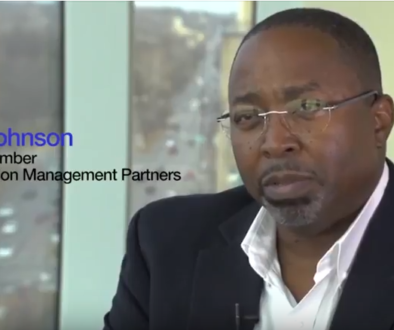Over at the New York Times this morning, we’re reminded by the President of Sundance TV, Sarah Barnett, that it’s OK to fail.
In Adam Bryant’s Corner Office interview Your Imperfection Can be Your Strength, Ms. Barnett counts among her many management lessons the recognition that “its O.K. for me to fail.”
I think women are ridiculously hard on themselves about needing to be both nice and perfect in managing people.
I can’t begin to tell you how much that resonates. Like Ms. Barnett, I can “feel terribly responsible for hurting someone’s feelings or for just handling something badly.” But before I could acknowledge my responsibility for the emotional well-being of my team, I had to learn to recognize my own painful limitations and forgive myself.
People’s Feelings Were the Greatest Challenges in My Years of Leadership
There’s no management training for lawyers, at least there wasn’t for the quarter century I practiced law and certainly not in law school itself. When you’re educated by your law professors and trained by senior lawyers to draw your adversary’s blood, you have to stop feeling other people’s feelings. It was something I had to learn. “Mental toughness.” And something I was instructed to unlearn. Compassion.
Lawyers start a legal battle with a “demand letter,” containing credible threats and a skewed version of the facts that makes one’s own client a saint and one’s opponent a black-hearted liar, cheat and thief. Your opening salvo imposes a deadline and predicts dire consequences for the other guy’s failure to comply with your demands. You advise your adversary that he should “conduct himself accordingly” or “act at his peril.”
Even a single lesson in collaborative leadership might have alerted me to the all but universal understanding that people do not comply with demands, or respond to threats, by laying down their arms, meeting your deadline and apologizing for their shameful behavior. What they do is to “lawyer up.” And everyone is off to the adversarial races.
Then They Expected Me to Manage a Team
As my practice grew, so did the size of the cases I handled. I started my legal career in a two-man shop where I was trained as a solo litigator and trial attorney. Then I moved on up the legal ladder to represent corporate America vs. corporate America, a role I considered morally neutral.
I transfer large sums of money between one corporate entity that can afford it to another corporate entity that can afford it. It’s ethically neutral.
In addition to I have a mortgage to pay, this is a Yuppie Nuremberg defense. It worked for me until it didn’t anymore. Having cut out my own heart to establish my credibility as a ravening trial attorney in a hyper-masculine trade (it was the 1980s) it was not easy for me to find my own feelings again.
I’d been hazed by my seniors and I didn’t see much wrong with hazing my juniors. Until, that is, I was informed by law firm management that the EEOC filed a claim against the firm for gender discrimination by me. That’s the first time I began to worry about other people’s feelings again, twelve years into my corporate legal career.
I was all about perfect, and, like most perfectionists, was far harder on myself than I was on my associates. It would take me years, and at least half a decade of sobriety, to figure out that demanding my own perfection had hardened me to my own spiritual state as much as it had made me unkind to others.
No one is irreplaceable
Listen, I’m better acquainted with failure than most people I know. I’ve been laid off during previous recessions but I’ve also been flat out fired even though I held myself to a standard of perfection I believed would protect my career like a magic amulet.
They need me; I’m irreplaceable; I’m the best attorney they’ve got.
I can’t tell you that any of this was either true or false. What I can tell you is that neither the need for my services,nor the difficulties of replacing a key employee, nor the quality of my work, would advance me to leadership, or even give me job security. I was so busy worrying about my own performance that I forgot it wasn’t my job to achieve individual success. It was my job to inspire my team to do that with me.
Before any team of people will consent to your leadership, you have to gain their trust and their loyalty. For me, that meant first recognizing and then forgiving myself for my considerable human fallibilities Only then could I forgive others for the insufficiently researched legal opinion, the leaky line of cross-examination, or the failure to lay the foundation necessary to get a key document into evidence.
If you’d like evidence of what a jerk I could be, I still redden at my response to an associate’s misreading of a key case that took me by surprise when arguing a “bet the case” motion to a federal judge: are you stupid or just lazy?
The lesson? It’s not only ok to fail, but an absolute pre-condition to success. Barnett again,
There’s a certain liberation and relief to give yourself permission not to always handle things well, and to create a culture where you can say: “Hey, you know what? Maybe I didn’t deal very well with you yesterday; this is what I meant to say.
Now, past sixty and a lifetime of professional successes and failures behind me, I am finally able to be compassionate to myself and accountable to others. And because I hate to apologize, I’m far more careful about pausing a moment before I form a judgment, asking questions to reveal the thinking behind the apparent failure, and making a constructive suggestion for future success.
Finally, just as I prepare to retire, I have learned to lead.




